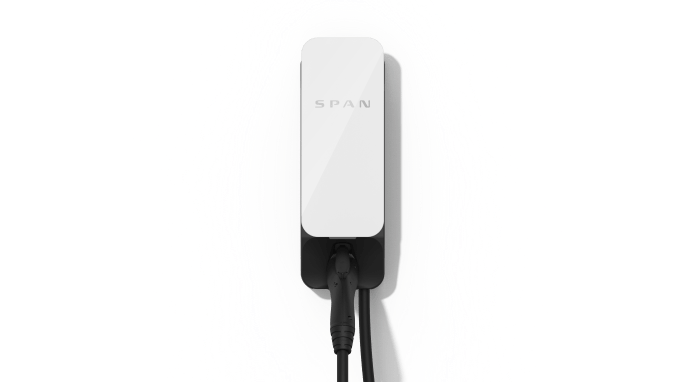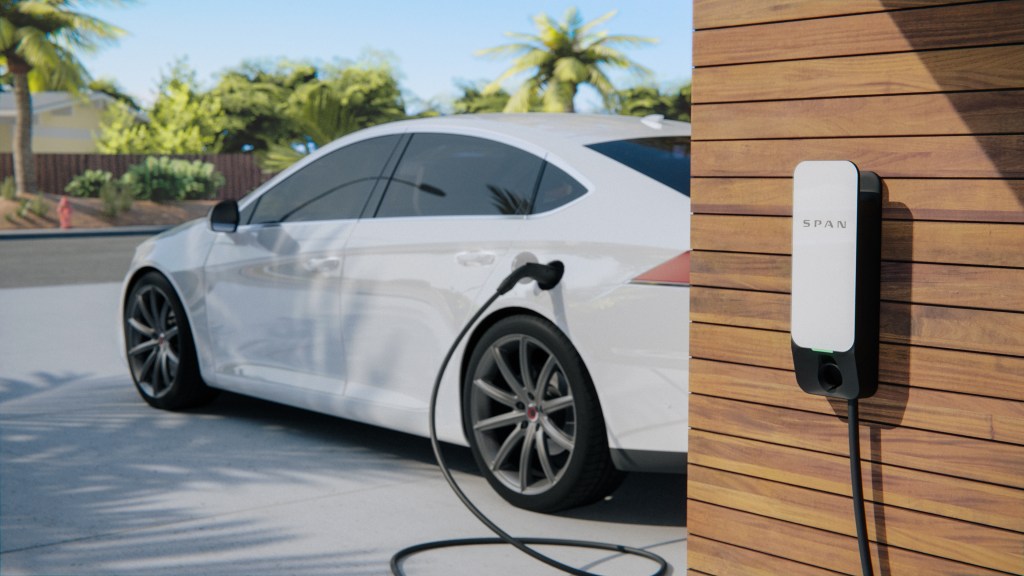Gone are the days when your A/C and washer/dryer were the movers and shakers (electrically speaking) in your house. These days, electric vehicle chargers, solar power and battery storage solutions set more electrons a-dancin’. Span is one of the companies running point on adding some smarts to the process. The company today launched the Span Drive, an EV charger that is making it possible to further empower your EV based on various rules.
Our homes are becoming more and more electrified, and modern units, in particular, can have power draws that homes of an older design don’t have. A/C and heating, heat pumps, water heaters, washers and dryers, induction cooktops, electric ovens, EV chargers and battery-based electrical storage can draw tremendous amounts of power. In addition, more and more homes have solar installed, which means a huge chunk of electricity going in the other direction. Between all of this, our homes are getting more complex and power-hungry, but the truth is that not all of these appliances run at the same time. This is the conundrum facing modern electric design: Your house may have a 100-ampere maximum power delivery from the grid, you may have 180 amps’ worth of appliances, but you probably won’t use them all at the same time. The problem is that you have to assume that, at some point, the homeowner will turn every appliance on at once, and the power company is going to get very grumpy — at least until your main circuit breaker cuts you off.
That is one of the challenges Span solves. The company launched its smart home electric panel in May, and announced a $20 million funding round a few months earlier. Today, it launches the Span Drive, a $500 electric car charger that extends the functionality of the $3,500 electric panel with some extra smarts targeted at one of the most power-hungry devices in a modern home: the electric vehicle.
“We are able to allow homes to continue to add electric appliances without having to bear the cost and time expense of upgrading the service from 100 to 200 amps, or from 200 to 400,” says Arch Rao, Span’s CEO.
“It’s not so much just that the panel is upgraded. We’re fundamentally rethinking what that device in our home needs to be, to enable much better power management and integration of clean energy and electric devices. The traditional panel was doing a very good job of being a safety device: It used to be the device where your power came in and got distributed out to different appliances and circuits in your home. And if your circuits were operating at a level that was unsafe, it would shut off the circuit. This is what a breaker does, and that hasn’t really evolved in about 100 years: It’s serving as a passive safety device,” explains Rao. “The location where the breaker panel sits is the most obvious place for innovation to happen: The panel sits at the intersection of the grid and all the things in your home. That isn’t just your appliances, but your solar system, your electric vehicles, your storage system, etc. The new panel that we’ve built performs the function of a passive safety device but does an order of magnitude more than that, in that it is the device that can safely disconnect or reconnect into the grid.”
This connecting to and from the grid aspect is key for people who want to try to live off the grid. Being able to turn a home into an island, at least electrically speaking, is one of the things that makes Span’s systems so interesting, from a future-proofing point of view. It also means that the panel can make your home operate independently for longer during a power outage. In a home with power-storage solutions installed it can get extra clever. When the panel detects a power cut, it can turn off non-essential electric devices. For example, it might turn off your thermostat to keep your fridge and freezer running for as long as possible so your food doesn’t go bad.

The system can be controlled with an app, which enables you to set up “rules” for how you want your house to operate. For example, you could choose for the A/C to run only when it can be powered by solar. Or you could choose to pump 48A into your car for an hour to fast-charge it, while the panel shuts off power to some of your other high-draw devices to keep the total power consumption under 100 amps. The reverse use case is also possible: Charge the car as fast as possible, with as many amps as you can, and if you put on a load of laundry, your A/C and you start making dinner with your electric oven and induction stove-top, the Span Drive simply drops the electric current that’s available to your car until your kids are fed and your clothes smell like lavender and group hugs again.
Alternatively, if you use your EV only rarely, you could program the Span Drive to only ever charge your car with solar power. Undoubtedly, this is a smugness multiplier for Tesla owners wanting to beat Ferraris off the stoplights in your own local reproduction of “Tokyo Drift: Less Vroom, More Whine.”
Of course, the Span panel itself can only turn circuits on or off, but because it knows how much power each circuit is drawing, it would be possible to use additional devices to get more granular control over your home. That’s probably part of the thinking from Amazon, as it participated in Span’s recent investment round — and the company announced Alexa compatibility.
In a way, it feels as if Span is adding a lot of smarts to a traditionally dumb part of the home. Power is about as un-sexy as it comes, but as appliances get smarter and the IoT wave swallows up larger and larger parts of the devices we use every day, it seems as if Span is building a micro-power-grid across your home, with discrete zones and powerful features that nobody quite knows how to use yet. To his credit, the CEO seems to be aware of that, and agrees that his company is in the middle of a land grab for the future of our homes.
“Where we sit, we have the type of persistence that very few products do. We are on your walls and stay there for the next 30 years or so. Of course we are thinking about future-proofing. The functionality we offer today is differentiated from anything our competitors are doing. Being focused on the future makes us fundamentally better than incumbent solutions,” argues Rao.































Comment